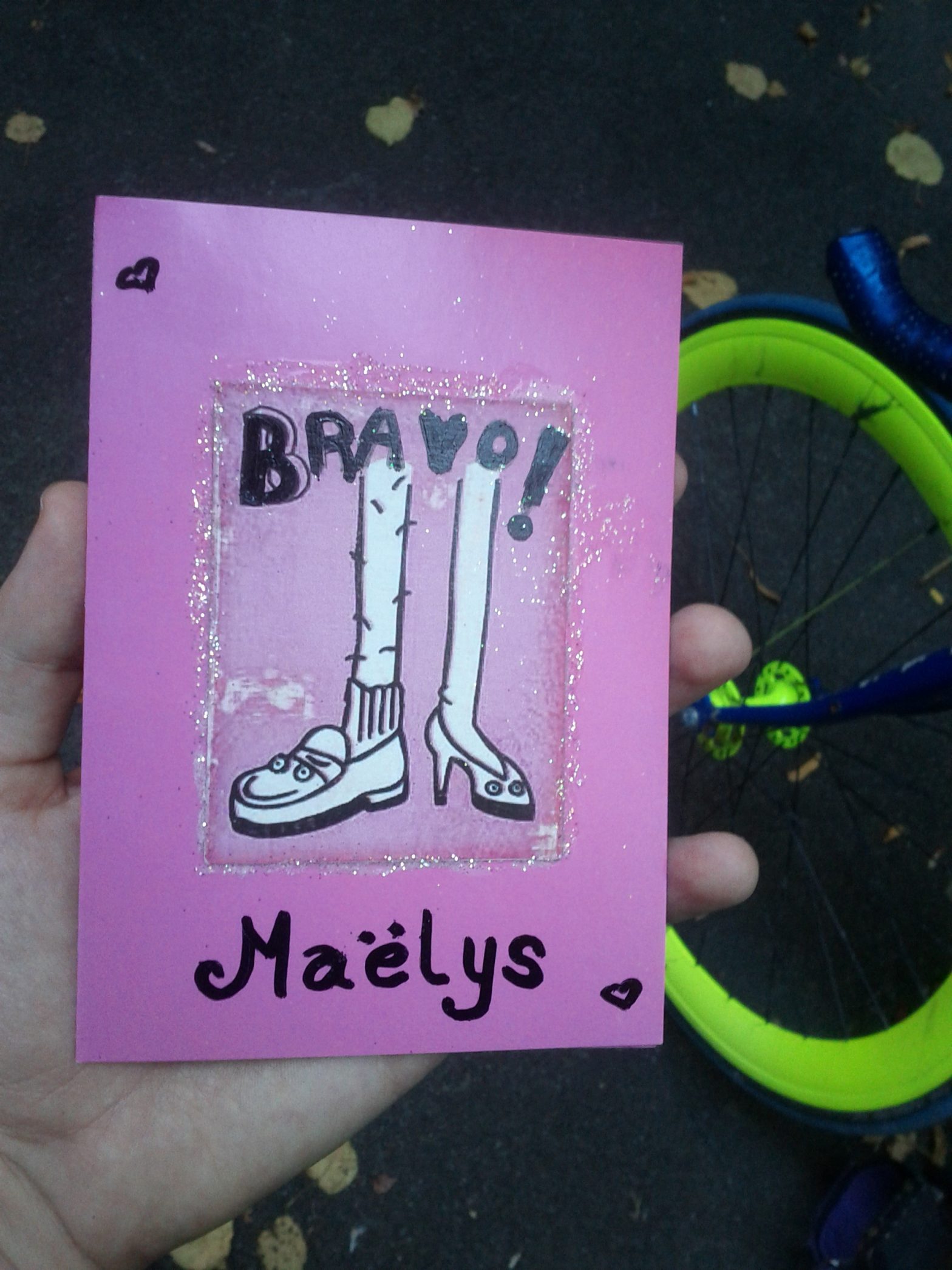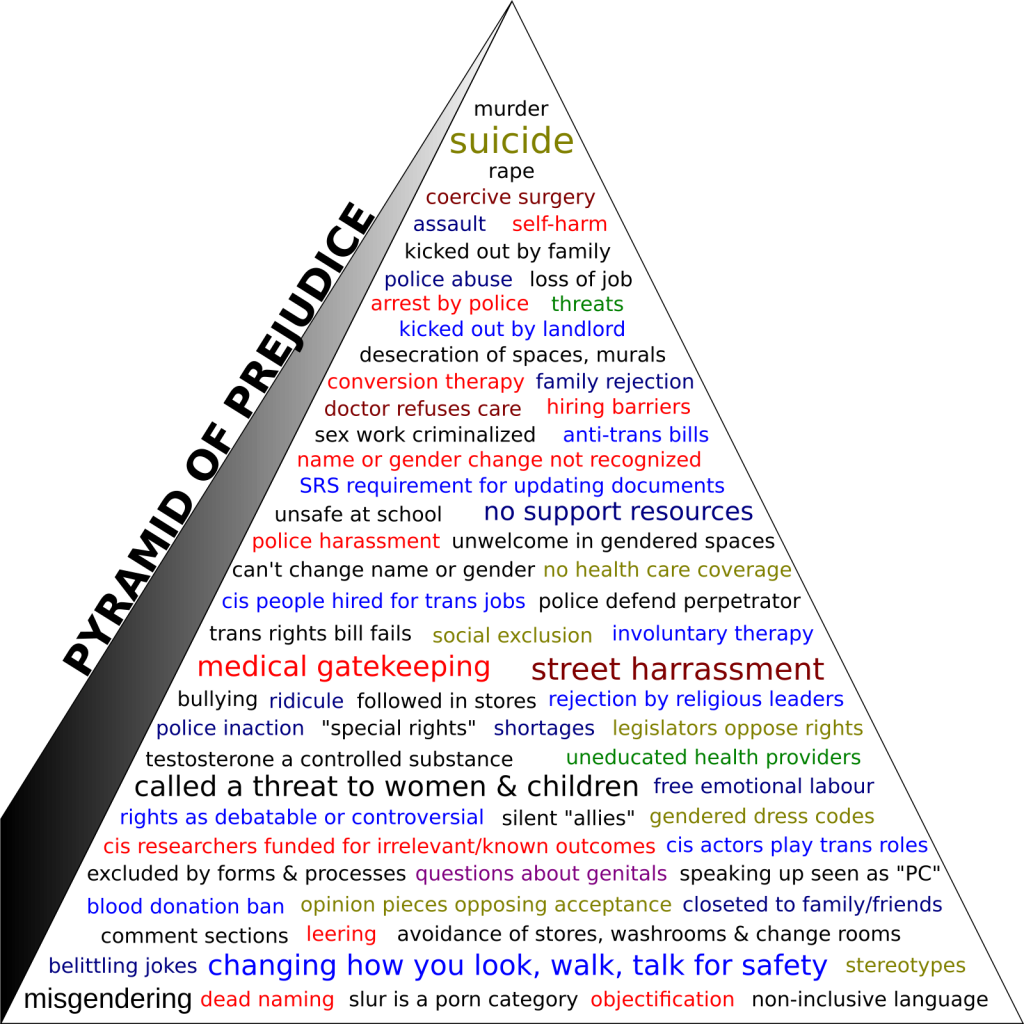Content Warning: This article mentions a previous way of thinking that conflates androgynous trans men and cis butch women. It also details transphobic harassment.
My transition started as the cumulation of little changes that eventually became something.
There isn’t a definite start. I didn’t like what puberty did to my genitals, which hit me the summer I turned 14, but it was what it was. I kept having crushes on lesbians in university, but tossed that off to being unlucky. It wasn’t universal – I had had a crush on a straight guy in high school. I remember falling asleep in uni wishing I had been born a girl, but transitioning never occurred to me. I grew up in a home that compared gay relationships to bestiality, with a step-dad that admired John Wayne and Clint Eastwood. As bad as it would have been to be gay, to end up like the large personalities ridiculed on daytime television was inconceivable.
I don’t know when things changed. I didn’t think anything of it when the first person I met during frosh in 2003 told me she had wondered whether she was masculine or a trans guy – settling on masculine. I was 18. In my third or fourth year, I joined a forum for trans men. That was in 2007-2008 and by then I was already openly pansexual and kinky. In 2009, I was dating a trans man.
Come 2010, I was following Tumblr accounts of trans guys and androgynous women unsure if I wanted to be them or be with them. I attended the Trans Day of Remembrance that year with my partner, watching NDP MP Bill Siksay promote bill C-389. My immediate social network was soon almost all trans people. This wasn’t conscious; many were originally friends of friends; many came out as trans after having befriended them. Like has a way of finding like.
In the winter 2011 – 2012, I started to alter the way I looked in the mirror of my bathroom. I bought a RodeoH in the spring of 2012, and come a year later I also had a hollow dildo and my first binder. I tried to make myself look more like the trans guys I saw. I tucked. There was safety and comfort in exploring gender through masculinity, but also a shame around appropriating the experiences of others.
I wrote the following in March 2013:
I’m MAAB, and I’m ambivalent with being read as male and he’d. I don’t hold to it, but since my gender expression is masculine then whatever.
But my sex is different. More specifically, the bottom area. I’m okay with a flat chest, I want the flat chest. But not the bottom. I wish there was a script I could follow to correct that that was supported here.
If I followed the script that is available, I’d be a butch woman who would bind. Not sure that that’s me.
By then I was having conversations with friends about hormone replacement therapy. I decided to give it a shot in May 2013, later explaining:
I knew I needed to quench this disconnect with my body.
At first, that was in the form of seeking bottom surgery. Really I could live on as a guy, I just needed to fix what was down there. If I contemplated hormone replacement therapy, it was just to follow the narrative to access surgery.
Outwardly transitioning wasn’t really an option I thought. I had no hopes that I could live on as stealth and that was really discouraging. I feared rejection. Meanwhile, all the trans women I was aware of seemed to be very feminine, which further made me feel isolated as that wasn’t my path. Genderqueer was more apt but that seemed to only to mean female-assigned-at-birth. I felt like I didn’t really belong anywhere.
I kept thinking more on transitioning, and I realized that no – actually I wanted what the hormones would bring me. Belonging be damned. Bottom surgery started to get less important. I reflected much in this period. I realized that despite all these fears of going at it alone and forever being ostracized in a deeply transphobic society, that it was better than the alternative.
Around this time I saw a YouTube video of butch trans women. I had known a few feminine trans guys, but this was the first time I saw trans women with a masculine gender expression:
It was the first time I saw someone like me. The video legitimized in me what I had felt, and what I had been pursuing seemingly on my own. Further helping things was that one of my friends from DEFCON had come out and been instantly named/gendered correctly by our mutual friends – including the one who had a Southern drawl. Her coming out helped make feasible what had seemed impossible then – being accepted as a woman having looked like me and having had cisgender friends like mine.
I made great strides in my self-discovery over the summer of 2013. I started the summer going by they/them pronouns. A friend helped me buy my first bra and skirts; I shaved my arms and later my legs; I went out in public in feminine attire for the first time. Each of these milestones was accompanied by the removal of a psychic burden; and I realised that I had deferred to a masculine and then a non-binary identity because I didn’t think I could be accepted as a butch woman. Only I could. Each of these steps was making me feel better about my body. I wrote later:
Weeks before Pride, that friend and I went to Value Village where I picked up two skirts. I wore that skirt for the first time outside a week before Pride. I was so afraid before then that I would be destroyed by comments from judgy passerbys. I had witnessed such homophobic and transphobic vitriol over the years in Ottawa. But at the same time, I needed to do this for me. So I femmed up and walked outside.
I did get inappropriate comments. But I didn’t care – because what I noticed as I walked down the street is that virtually no one so much as gazed in my direction. That lack of attention was in itself so affirming that when someone finally did say something nasty, I just didn’t give a shit.
Pride came, and I wore that skirt again. I felt so real.
Two days later, I announced that my name had changed to Maëlys.
I came out to my mom and step-dad in September 2013, some four months after I had made the call to start hormone replacement therapy and after all these realisations. It didn’t go well; my step-dad informed me that this was delusional and that I was hurting those close to me by transitioning.
After that exchange didn’t end positively, I wrote this letter to him and my mom the following month:
Hi there to the two of you,
I wanted to write this letter so that I could bring some clarity to what was going on with me.
Mom I never gave you much in that regard directly. [Step-dad], I didn’t feel like the communications we did share elucidated much. They were framed in terms of you disagreeing with my decisions without an awareness of what led to them, and that shaped the dialog in a way that was similarly constrained.
My purpose here isn’t necessarily to convince you, but to inform you. For me to able to speak plainly about myself so that you at least have the perspective of the one experiencing this. My hope is that my doing this will strengthen our relationship through understanding.
A good starting point would perhaps be to start with saying that I am transitioning. That I go by the name Maëlys, and that my pronouns are she/her.
There wasn’t really a fixed start to this transition. If you want something more tangible, you could go back to the winter of 2011/2012, which is when I started to make a conscious effort to alter my appearance in the privacy of my bathroom. Round my chin, make it seem like I had a chest, tuck, etc.
Or you could go forward in time to this past spring, which is when I started being assessed for hormone replacement therapy. There was much in between, including months of self-reflection and pondering what living meant to me. I won’t speak much to that here, however.
What I will instead cover is how I feel as I have been transitioning outwardly over this past summer. Every step I’ve taken, from buying a bra, to shaving my legs, to then shaving my arms – has resulted in a progressive shedding of a long-standing source of discontentment around my body. I can actually enjoy my own company now. This is new.
As I had once described to you [step-dad], it’s as if each of these steps is accompanied by a weight being lifted off my shoulders. Only in their absence do I become cognizant of their past presence, with the accompanying relief so great that I could never fathom going back to that miserable self.
Meanwhile, I’ve been enjoying wonderful relationships with folk. They know me only as Maëlys and have no problem she-ing me. It’s funny how much the use of one word is powerful. It’s the difference between “Your existence is legitimate” and “I won’t even treat you as you ask to be treated, even if it’s but uttering a single word.” I am grateful for their presence in my life.
Truth be told, I don’t know what my future holds. That’s okay with me. What I do know is that what I’m doing now is right for me.
Much love,
Maëlys
In their response, my parents addressed me by the correct name. Over the next year I would make the name change legal and start hormone replacement therapy. Later on I would amend my gender marker on my birth certificate, driver’s license, etc. The sense that I was appropriating the experiences of “real trans people” would go away and I would accept that I was trans.
This brings us to the present, some six years later: I had surgery on February 6th that removed my penis and testicles and created a vulva. It is the last major milestone of my medical transition.
Jumping into the unknown with hormone replacement therapy remains the single best decision I’ve ever made. I didn’t go in knowing whether it would work for me; just knowing that it was possible that it could. Am I ever glad I did. I am so grateful to those who counseled me and assured me the changes were progressive and reversible. I’m also thankful to those who shared their own stories. It was reassuring to know that I wasn’t the only one who didn’t “always know” and lacked the easily digestible narrative.
Had it not been for the listening ear and calm words of my friends, I wouldn’t have been able to make this important leap. Their support was precious in this very intimidating time of my life.
Evolution in photos
With all that said, I figured that I’d mark my surgery with a photo essay of the past decade.
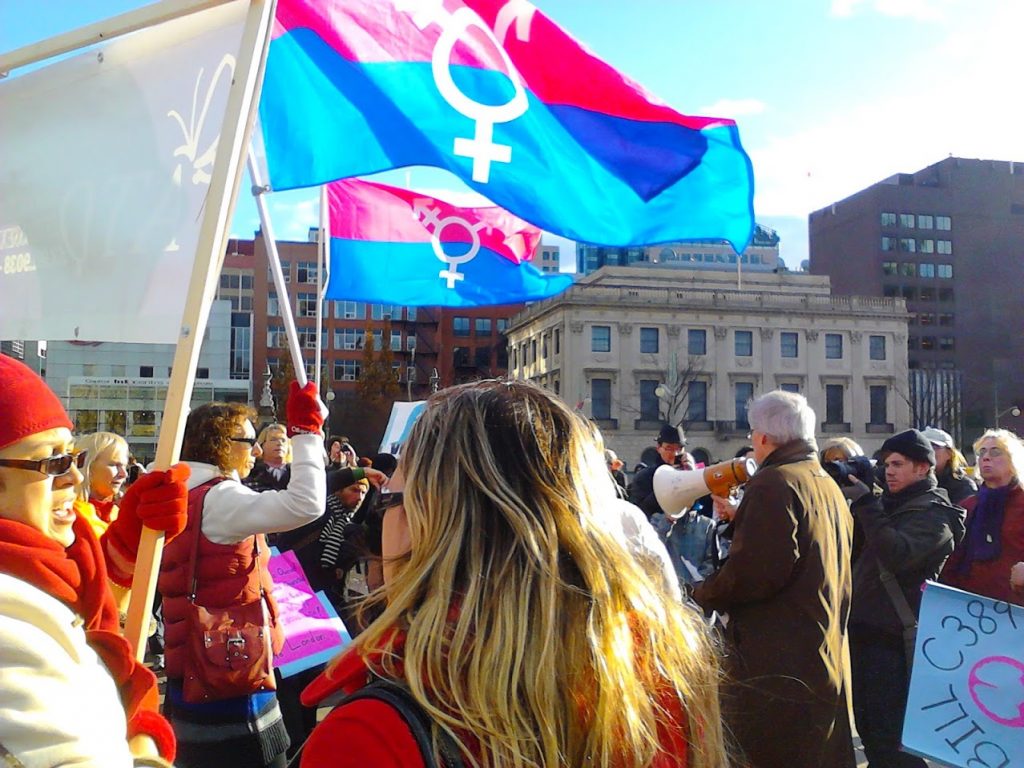
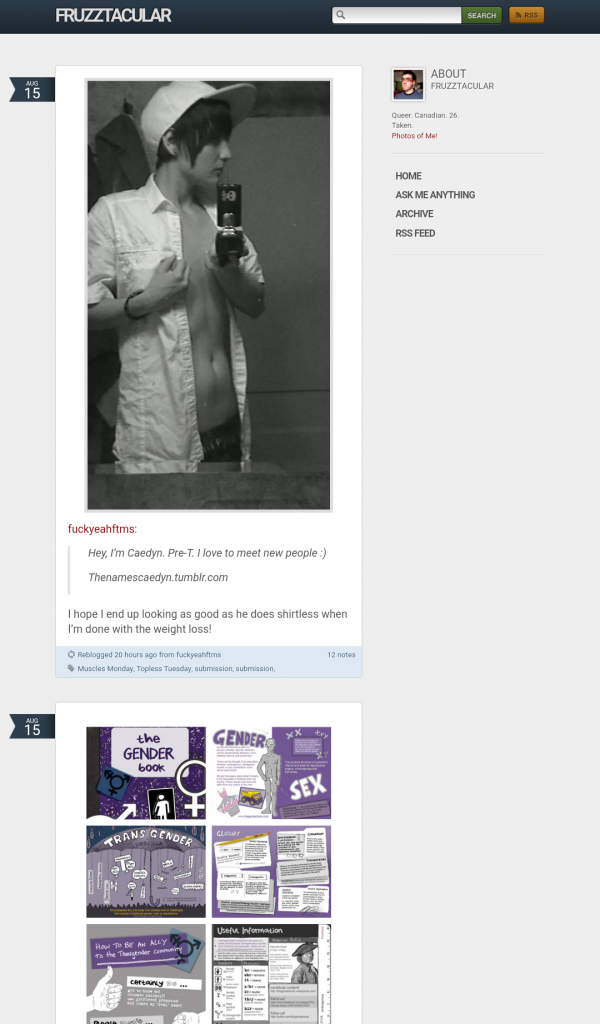
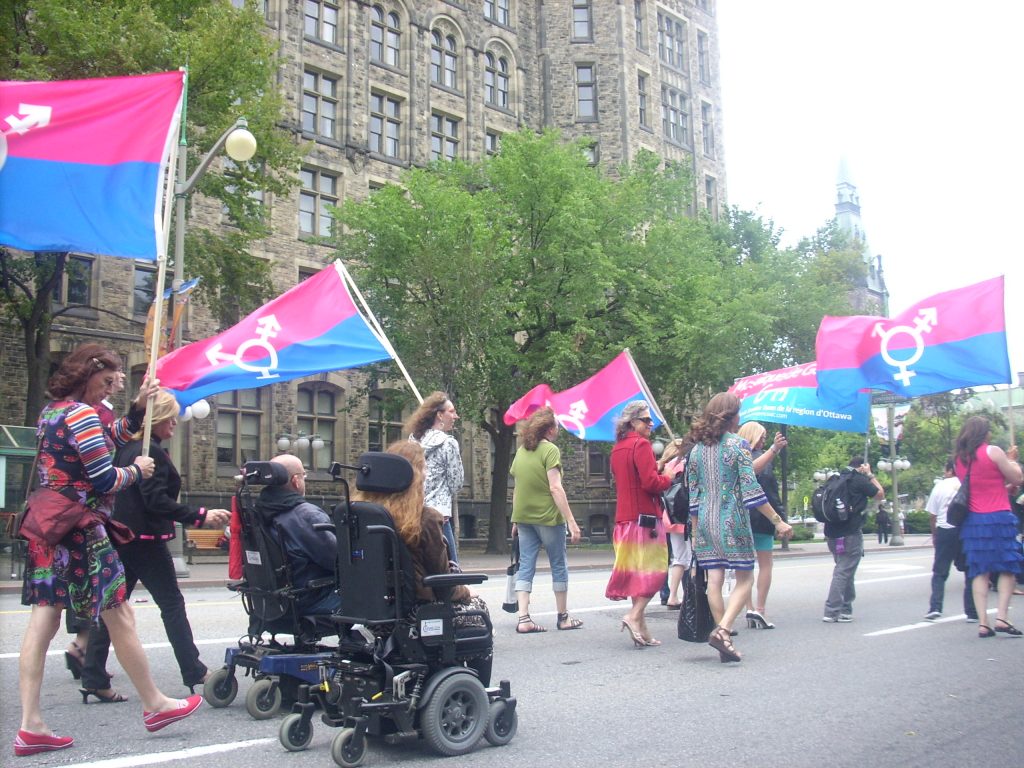
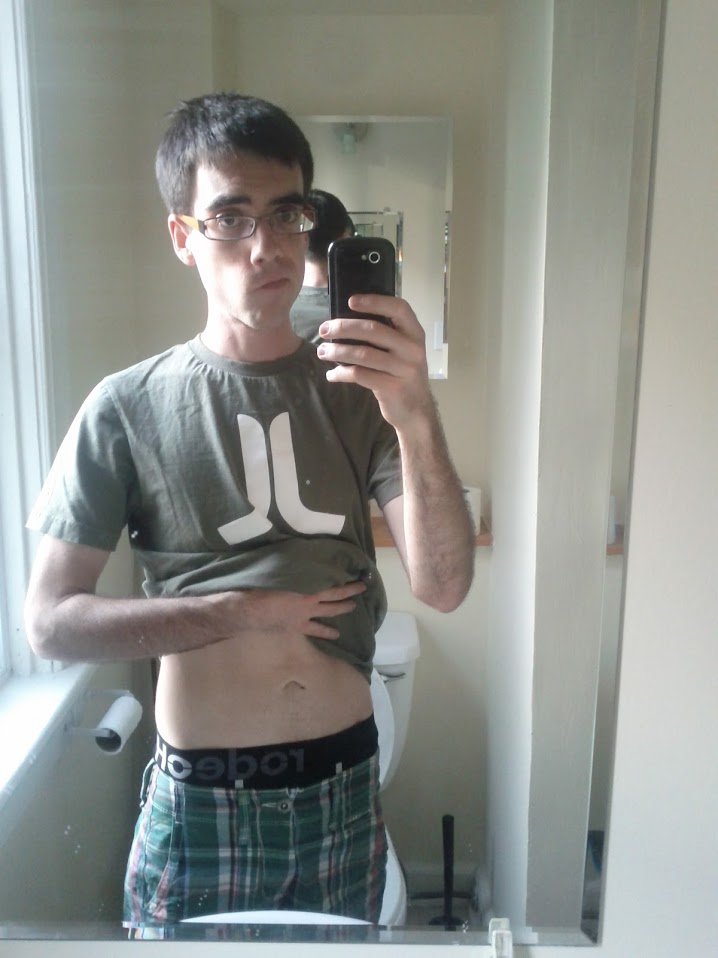
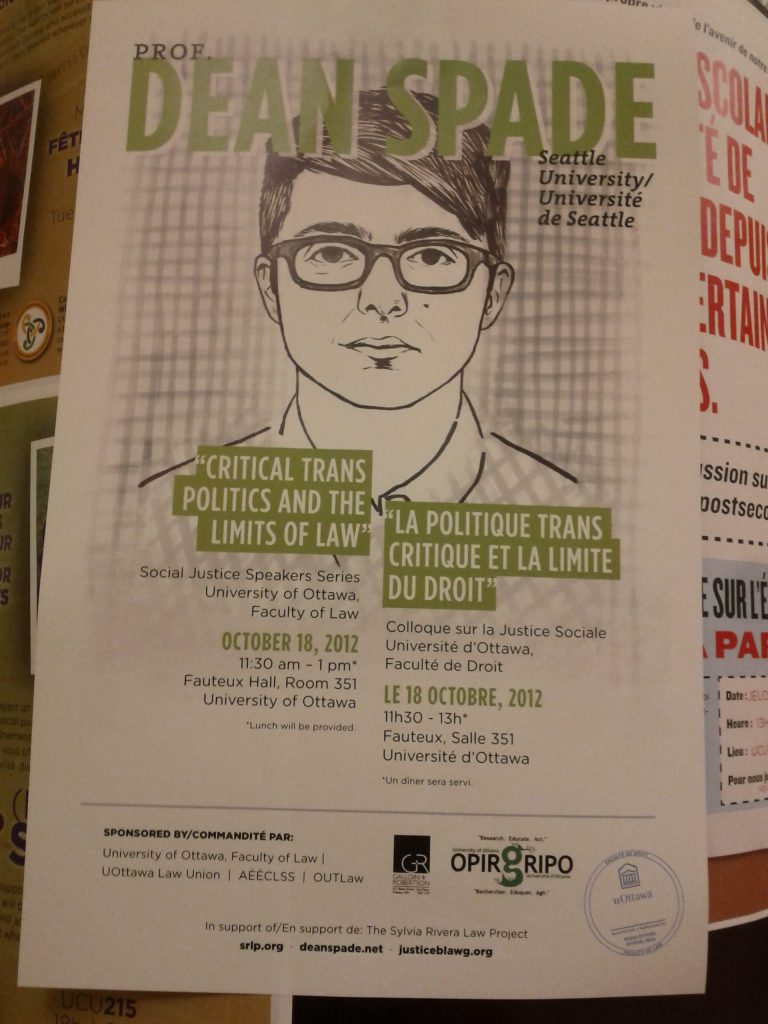
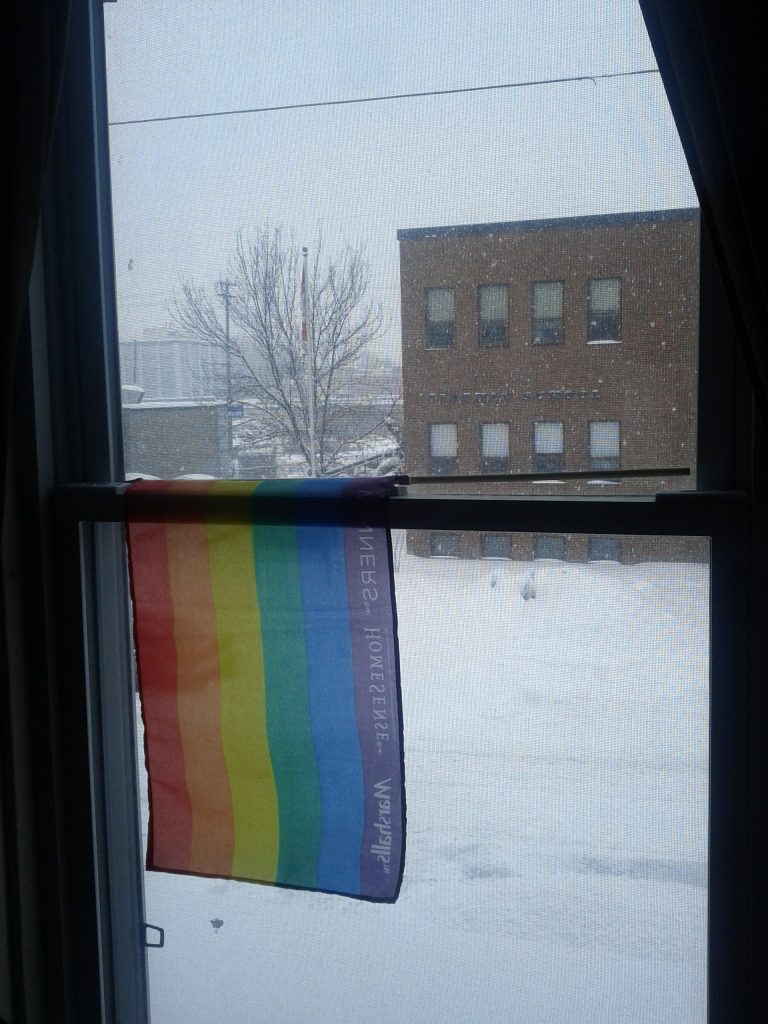
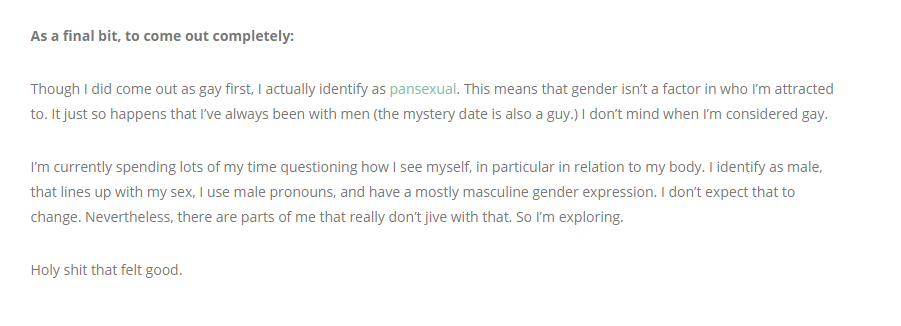

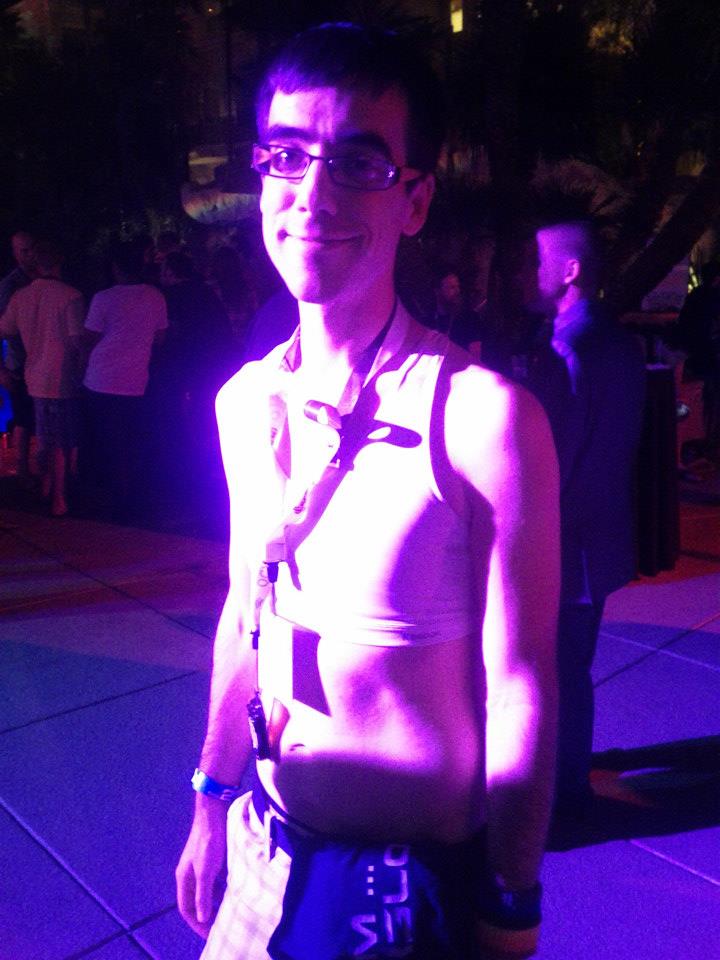
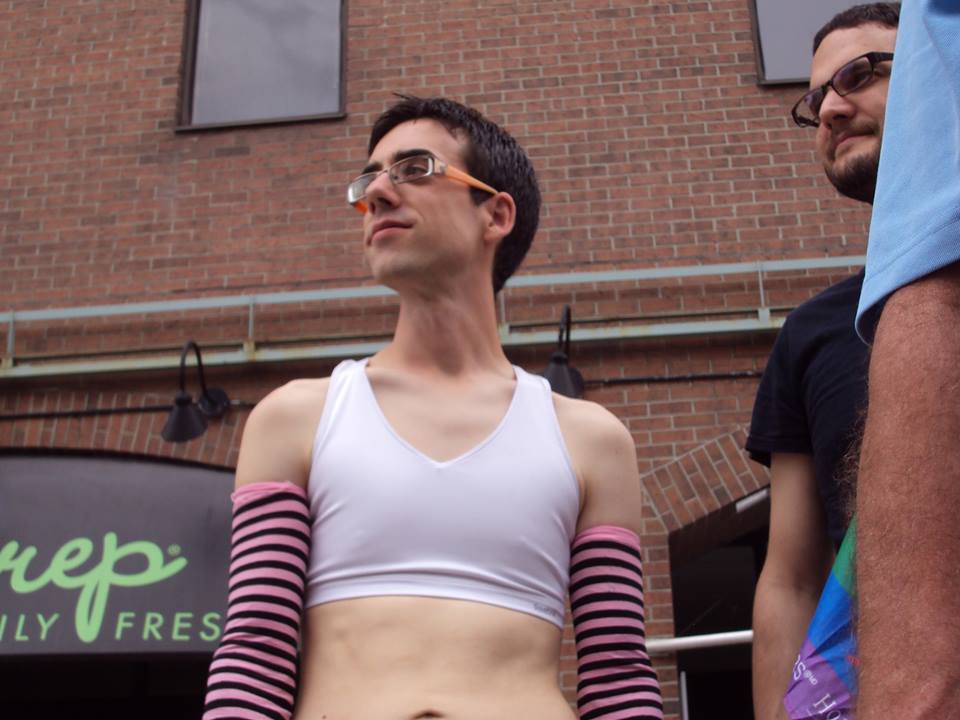
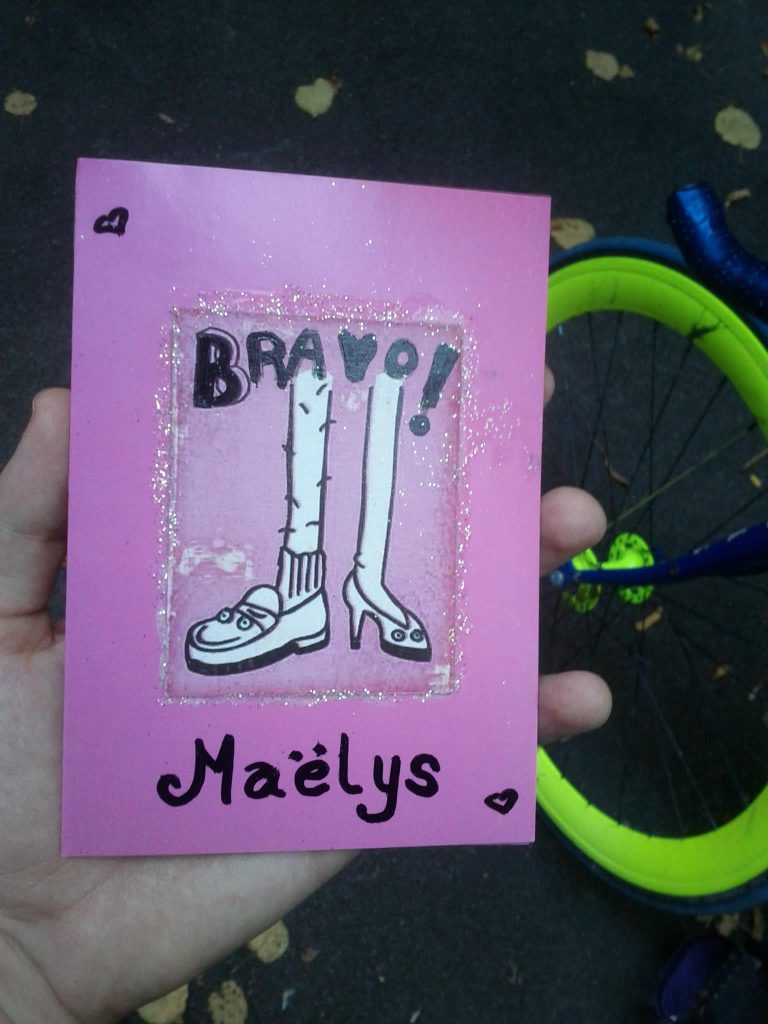
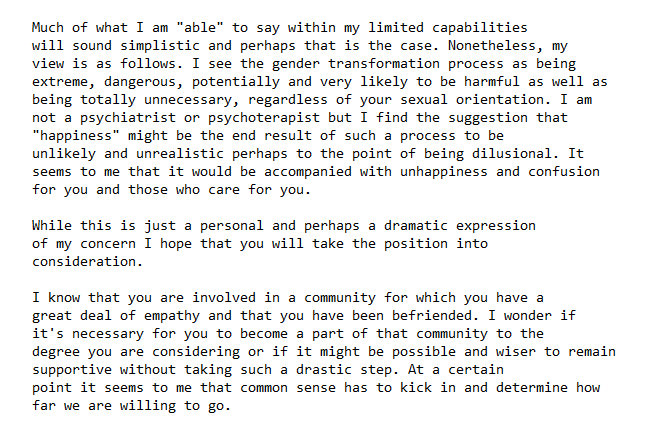
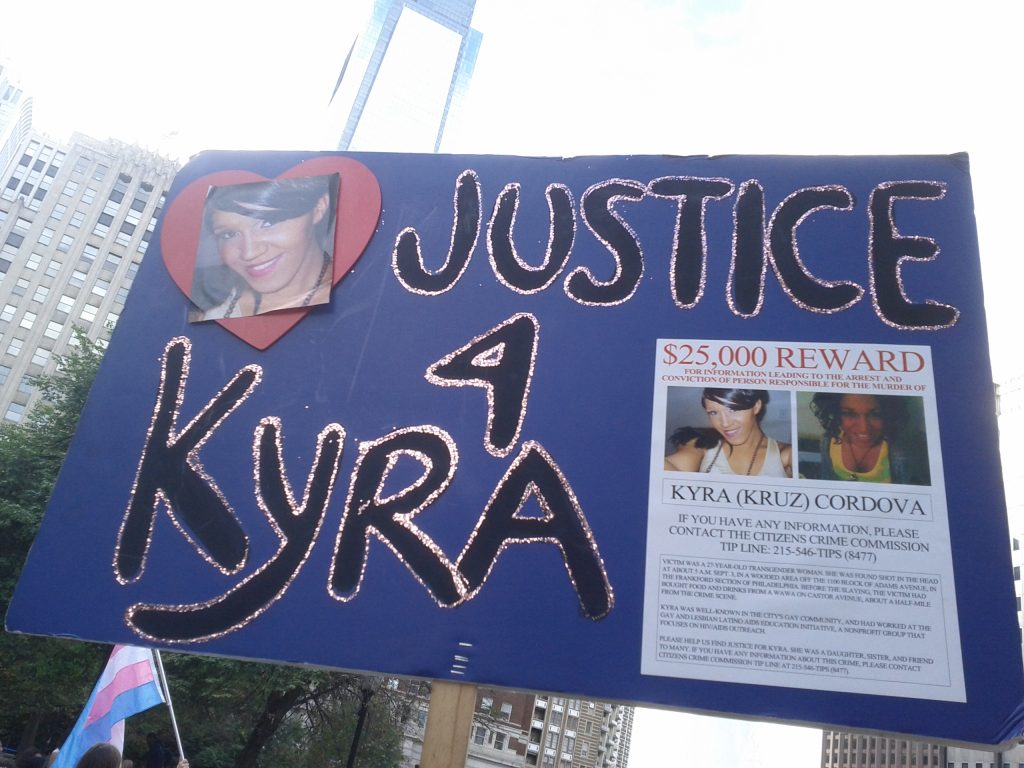

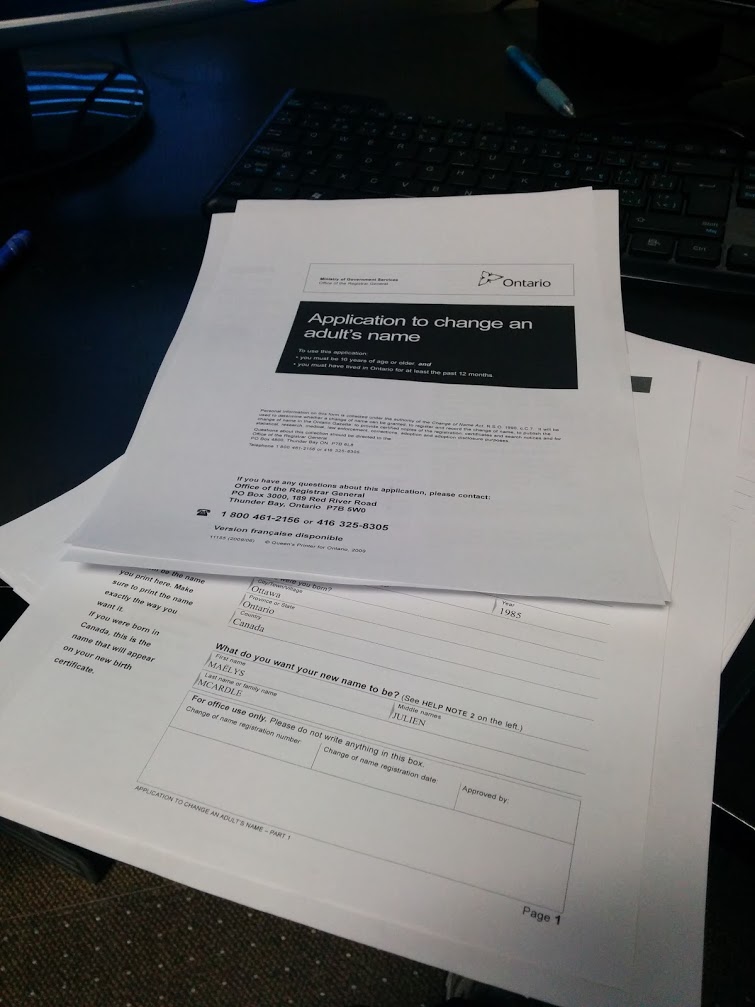

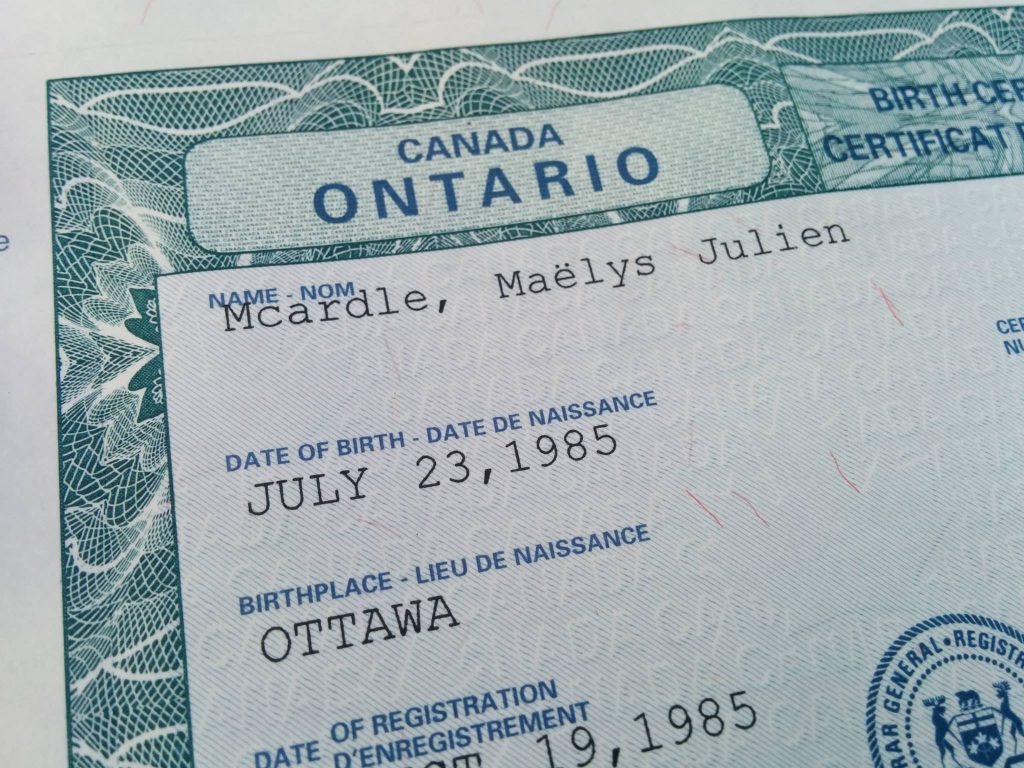
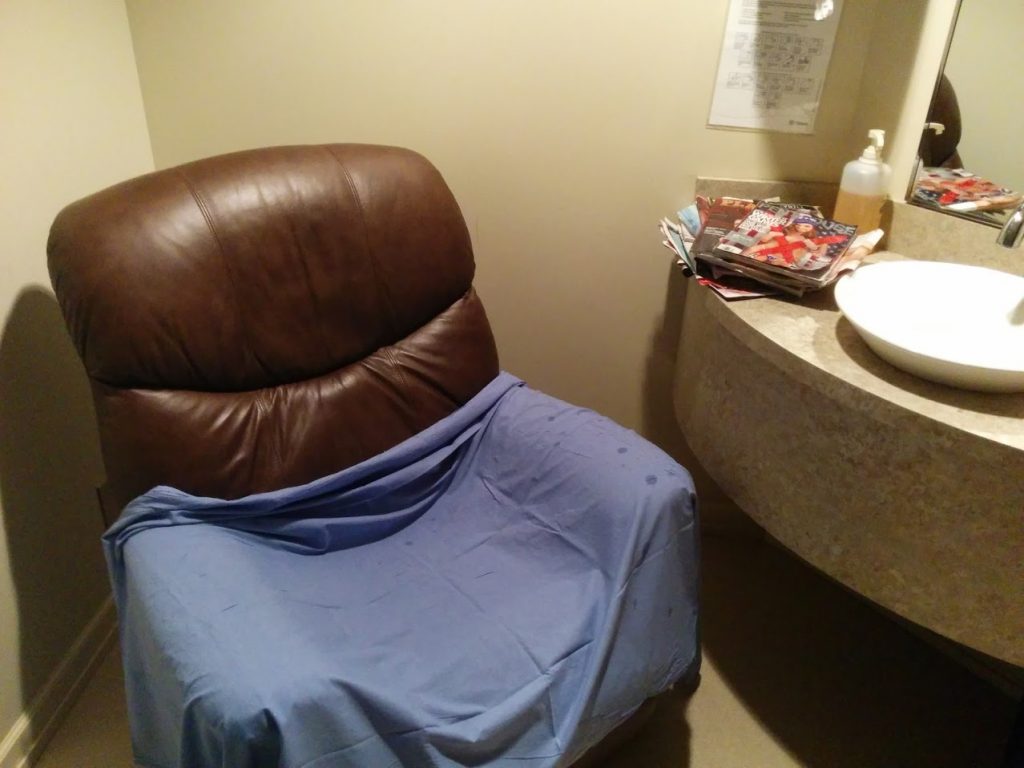
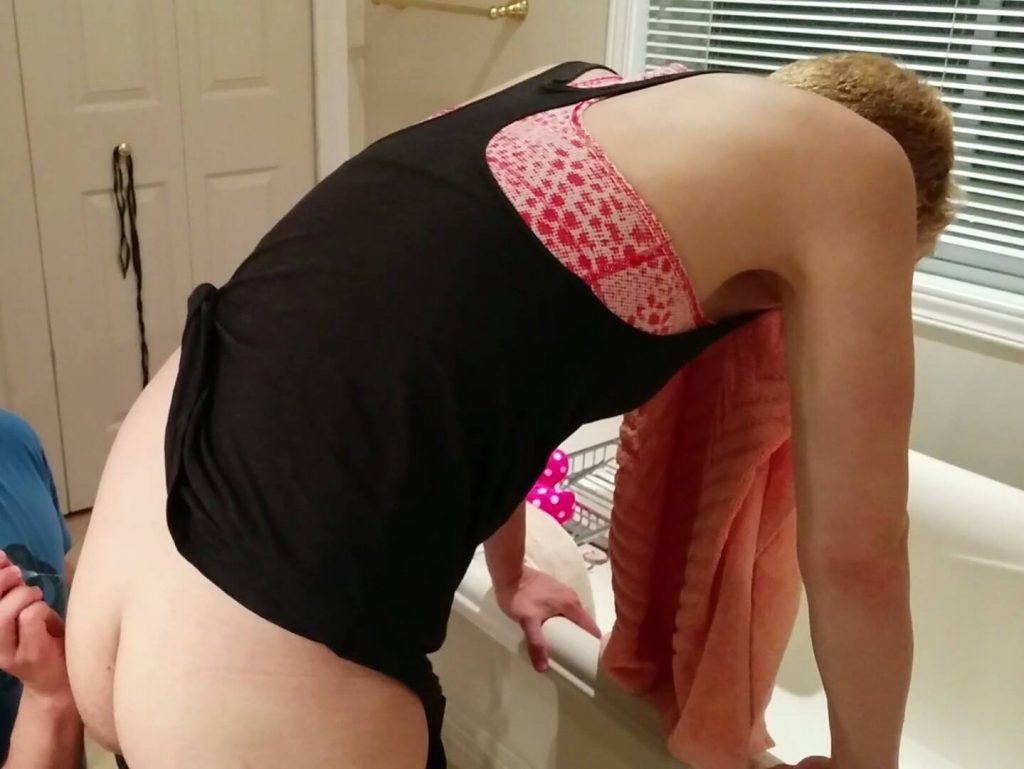
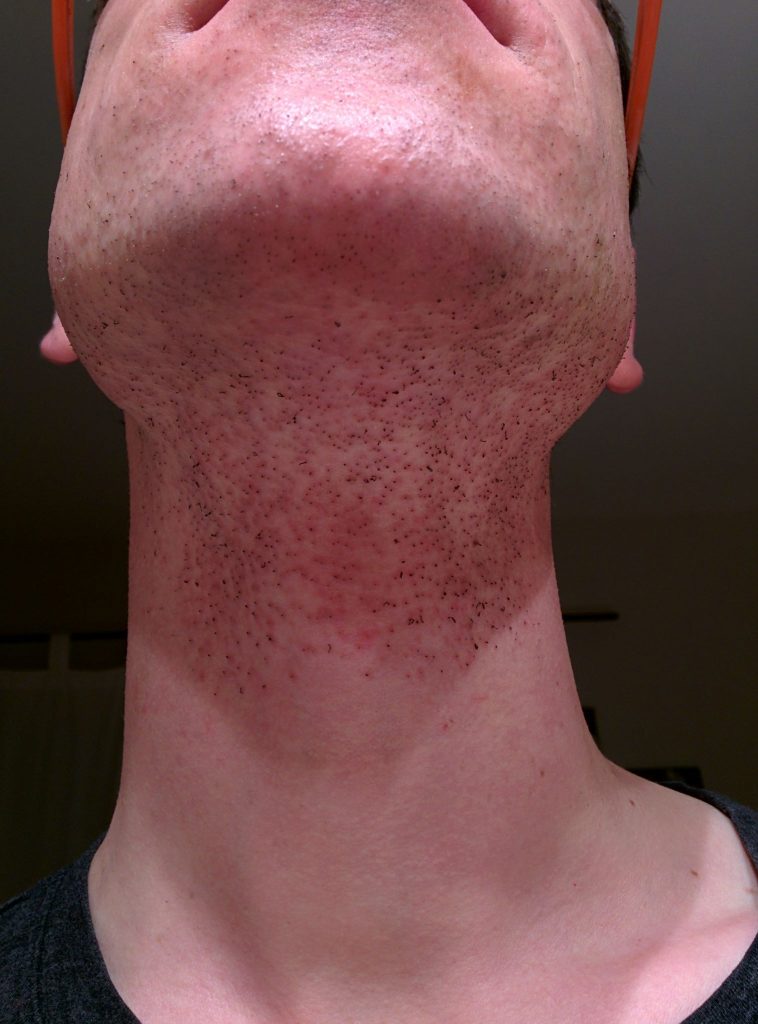
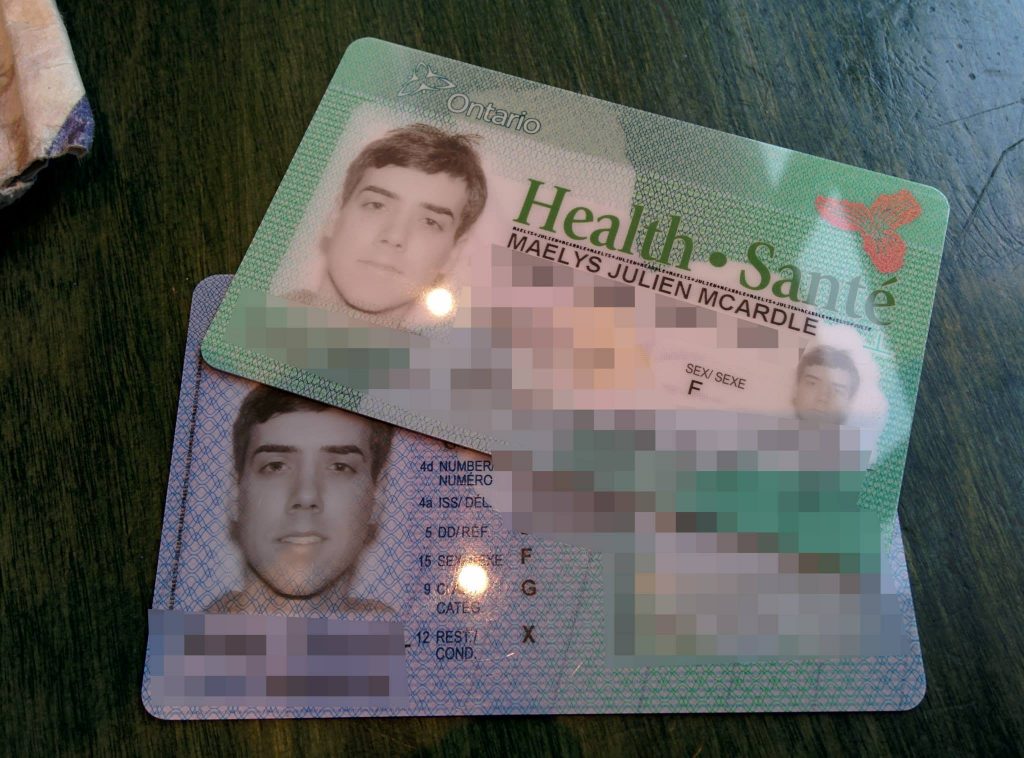
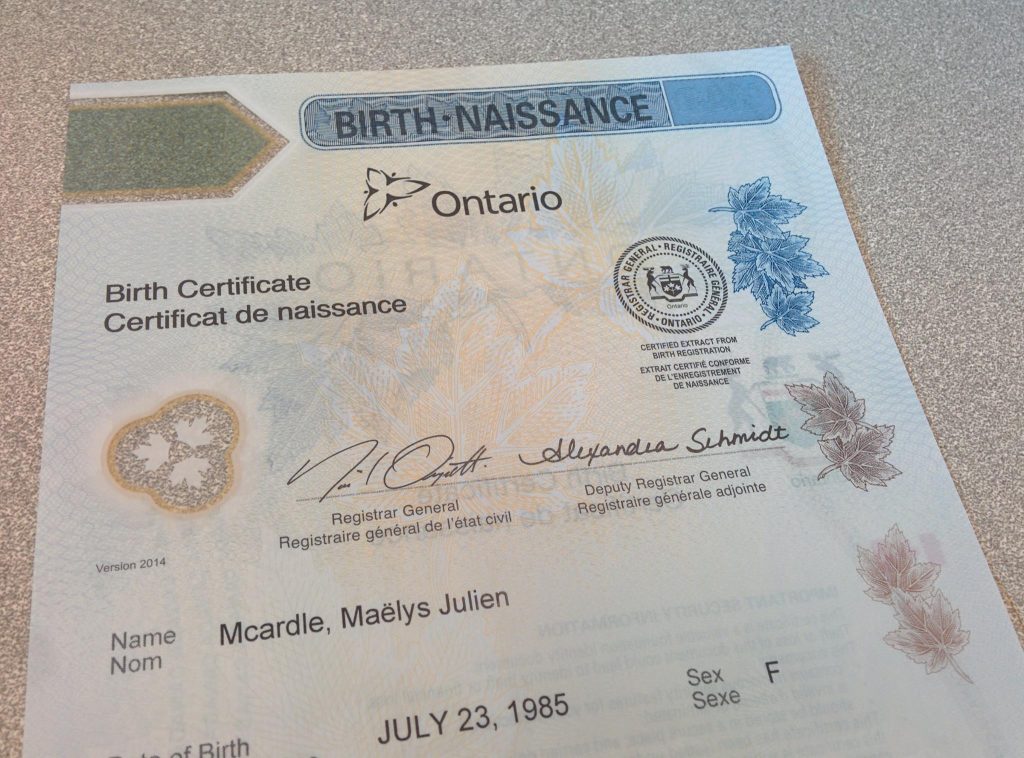

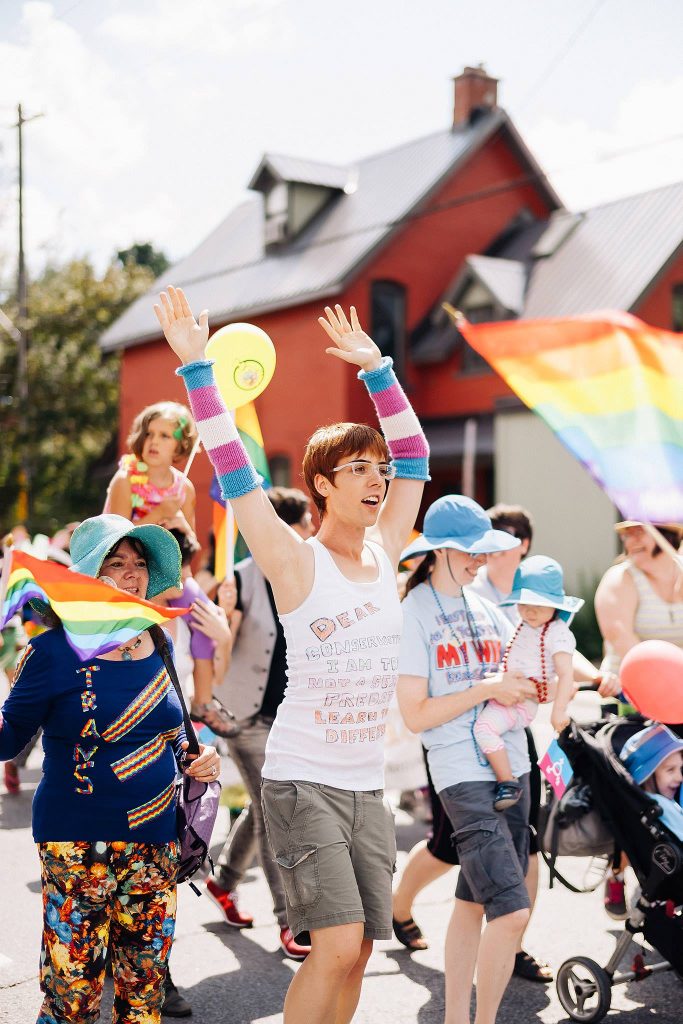
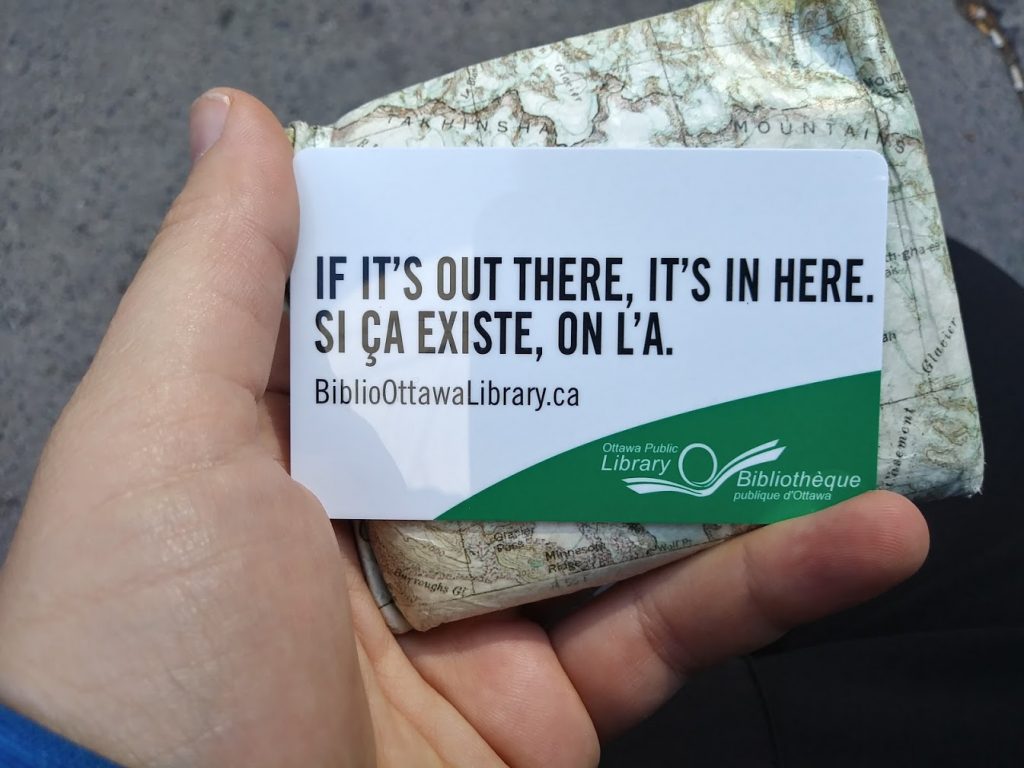


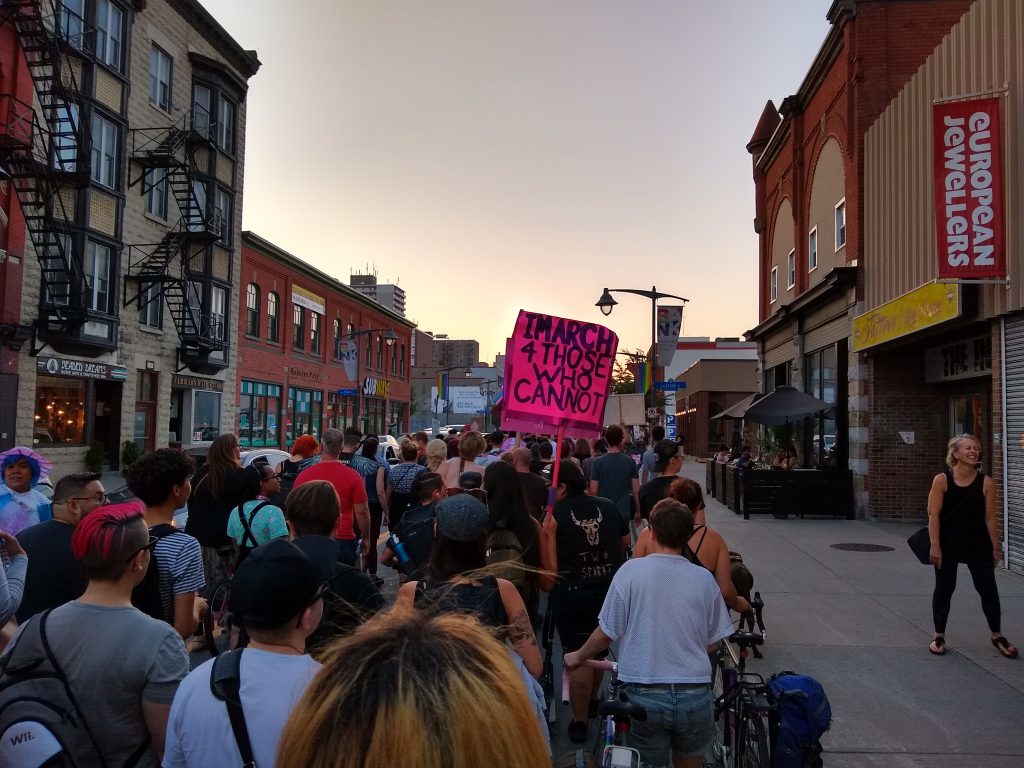
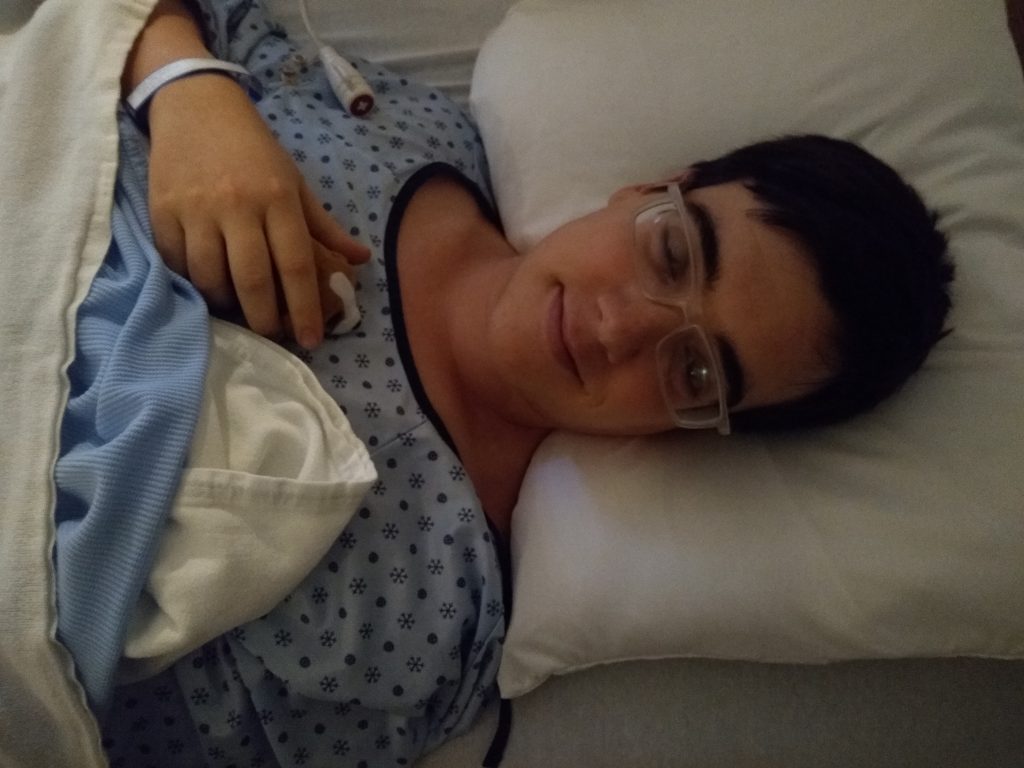
Societal context
As an aside, things have happened in the world in the short period since I’ve started to transition. I thought it would be useful to give some of that context from an Ottawa lens:
2008
- OHIP relists gender affirmation surgery under a Liberal government. The Progressive Conservatives had delisted it in 1998, requiring people in Ontario to pay out of pocket for surgical care.
- Gender Mosaic, the support group primarily for 50+ trans women in Ottawa, celebrates its 20th anniversary.
- YouTube becomes the place to be to find young trans people talk about their lives and spread information.
- Ivan Coyote releases the book The Slow Fix.
- Susan Stryker’s book, Transgender History, is published. It becomes essential trans lit along with The Whipping Girl, a book by Julia Serano published the previous year.
2009
- NDP MP Bill Siksay introduces a bill (C-389) to recognize gender identity and expression in the Canadian Human Rights Act.
- The Trans PULSE project starts surveying individuals in Ontario, providing much needed statistical data to inform policy.
- The support group started by Trans Youth Ottawa in 2004 stops operating at Pink Triangle Services. GenderQuest, which started in 2005, continues operating.
- Project Acorn starts up, offering a summer camp atmosphere for rainbow youth 16-24.
- Rainbow Health Ontario releases the Guidelines and Protocols for Hormone Therapy and Primary Health Care for Trans Clients.
- The first issue of the FTM zine Original Plumbing is released.
2010
- Tumblr becomes the place to be to find young trans people talk about their lives and spread information.
- Sam Orchard starts the web comic Rooster Tails.
2011
- A Toronto couple make international headlines for not disclosing the genitalia of their newborn or making assumptions about the baby’s gender. They are lambasted by Canadian media.
- Conservatives kill an NDP bill (C-389) to recognize gender identity and expression in the Canadian Human Rights Act.
- Trans PULSE finds that half of trans people in Ontario make less than $15,000 a year and that harassment including from the police is common.
2012
- Ivan Coyote and Rae Spoon go on tour with their show Gender Failure.
- Ontario drops the requirement to be involuntarily sterilized in order to update the gender marker on documentation. Other provinces and territories follow suit.
- Ontario adds protections for gender identity and gender expression in its human rights code. Other provinces and territories follow suit.
- Ontario passes a law that prevents schools from banning clubs for LGBT students. These clubs had been banned in all of the province’s Catholic schools.
- January Marie Lapuz is a trans woman who emigrated from the Philippines. She is the Social Coordinator of Sher Vancouver and the first transgender person to hold an executive position with the group. She is described as the life of the party. She is also a sex worker. She is murdered in Vancouver.
2013
- The DSM-5 removes gender identity disorder, and replaces it with gender dysphoria. It shifts away from presenting a trans identities as a sexual dysfunction and paraphilia.
- Orange is the New Black comes out, and with it an explosion of attention on trans lives by cisgender individuals. News media and television become saturated with coverage, though it remains largely reductive and largely focused on white and affluent persons.
- Rae Spoon releases the album My Prairie Home.
- Nevada, a book by Imogen Binnie, is published.
- The first episode of Rebecca Sugar’s animated television show, Steven Universe, airs.
- The zine Brazen containing safer sex information for trans women is published. It compliments the zine Primed which was released for trans men into men in 2007.
- Centretown CHC starts an HRT referral program for adults. Minors meanwhile can go to CHEO’s Diversity Clinic.
- Youth Services Bureau reveal that 40% – 50% of homeless youth in Ottawa are LGBTQ.
2014
- Mosaic, the documentary by Markus-Harwood Jones and Shane Camastro, is released.
- A Safe Girl to Love, a short story compilation by Casey Plett, is published.
- Trans Bodies, Trans Selves is published.
- The first issue of the comic Lumberjanes comes out.
- Sophie Labelle starts the web comic Assigned Male.
- Against Me! releases their album Transgender Dysphoria Blues.
- Maclean’s cover story is about trans children. The matter has gone mainstream in Canada.
- Facebook starts banning users for using names that do not match their legal documents.
- Trans Lifeline, the hotline offering emotional and financial support to trans people in crisis in Canada and the US is founded.
- Conservatives pass a law making it illegal to purchase or live off of sex work. These developments make it less safe for sex workers in Canada.
- Rosa Rebut is a trans woman from Indonesia who enjoyed Edmonton winters. She posted pictures of her frolicking in the snow at the legislature grounds, shopping on trendy 104th Street and joked she was a snow princess looking for her snow prince. She worked at a 7-Eleven as well as an escort. She is murdered in Edmonton.
2015
- Morgan M. Page releases the first episode of the trans history podcast One From The Vaults.
- The three year wait, and need to go to CAMH before a panel of cisgender doctors to get gender affirming surgery is dropped. Now any general practitioner in Ontario can approve.
- Conversion therapy is banned in Ontario. Months later, the conversion therapy clinic for gender diverse youth run out of CAMH is shut down.
- Conservatives kill an NDP bill (C-279) to recognize gender identity and expression in the Canadian Human Rights Act, but not before modifying the bill to make discrimination explicitly legal.
- The Ontario government introduces sex ed that includes gender identity and expression.
- Trans Health Information Ottawa (THIO) is founded.
- Québec drops the requirement to sterilize trans people who want to correct their gender on government documents.
- Venus Envy, the feminist book and sex shop in Ottawa, is fined after selling a binder to a trans teen. It is the only store selling binders in Ottawa. The fine is waived after community outcry. The store later purges its pornographic video collection to remove age restrictions on entry; this includes feminist films of trans performers engaging in consensual sexual activity.
- Rentboy is shut down by the US Government. These developments make it less safe for sex workers around the world.
- Sumaya Dalmar is a trans woman of colour who has been the lead actress in a play about the relationship between the Somali ethnicity, religiosity, and its correlation to masculinity. She is a qualified speech therapist. She’s about to start a job with the 519. She’s also a sex worker. She is murdered in Toronto.
- Forge releases the free book Transgender Sexual Violence Survivors: A Self-Help Guide to Healing and Understanding.
2016
- University of Toronto professor Jordan Peterson becomes famous and a millionaire off of his opposition to adding gender identity and gender expression to the Canadian Human Rights Act.
- Angus Reid polls Canadians for their attitude on trans issues. 25% of Canadian men are uncomfortable with a trans person moving next door. Only half of Ontarians think trans people should be able to use the washroom they’re most comfortable using.
- The only clinic performing bottom surgery in Canada is set on fire by an attacker. It is forced to close pending repairs.
2017
- A mural for murdered trans women of colour in Ottawa is unveiled. It is destroyed weeks later, with the threat “you’ve been warned” spray painted on.
- Protections on the basis of gender identity and expression are added to the Canadian Human Rights Act by the new Liberal government.
- Support And Education For Trans Youth (SAEFTY) is founded.
- Trump presidency begins. The White House announces it will fire all out trans service members from the military and coast guard. They remove all federal protections for trans students in schools. They remove protections in health care, prisons, and businesses.
- Backpage is shut down by the US Government. Craigslist stops running personals citing new US law. These development makes it less safe for sex workers around the world.
- Alloura Wells is a trans woman of colour with a sense of style, a great singer, and approachable. She is a sex worker. She is murdered in Toronto.
- Sisi Thibert, a trans woman of colour and sex worker, is murdered in Montreal.
2018
- Tumblr, which has been flagging trans content as adult-only, begins purging the site of all “adult” content.
- YouTube demonetizes videos that feature trans people, as the content is deemed to be unsuitable for advertisers.
- A corporation, monetizing on the acceptance of trans people among its younger consumer base, launches a marketing campaign supporting trans rights. It gives a part of the proceeds to an Ottawa-based charity with a history of abuse of its gender diverse staff.
- Little Fish, a book by Casey Plett, is published.
- Lyra Evans is elected as a school board trustee in Ottawa.
- The Progressive Conservatives take power in Ontario and strip the sex ed curriculum of mention of gender identity and expression.
- The Christian Heritage Party (CHP) had put up bus shelter ads presenting trans women as sexual predators in Hamilton. These were taken down following negative media attention by the city. The CHP wins a lawsuit against the city for taking down the transphobic ads.
- Myrah Whitstone is an indigenous trans woman who studied social work and did advocacy work for an Indigenous mothers group. She is murdered outside Edmonton.
- Moka Dawkins is a trans woman of colour and sex worker. In 2015, she attends the vigil of her friends Sumaya Dalmar, a trans woman of colour and sex worker who was murdered. Months later a violent client stabs Moka in the face with a kitchen knife. She kills him defending herself. Dawkins is arrested, put in an all-male jail and in 2018, she is given an eight year sentence.
Somewhere in there health care practitioners in Ottawa started to adopt informed consent for hormone replacement therapy in greater numbers. Workshops targeting health care professionals on these matters became well attended by those who didn’t specialize in this care. Workplaces and schools started to include gender expression and identity in their non-discrimination policies. Mainstream bookshops went from carrying zero books on trans lives and issues in their LGBT section to those books making up a significant portion of their collection. It became common for schools to have multiple out trans students.
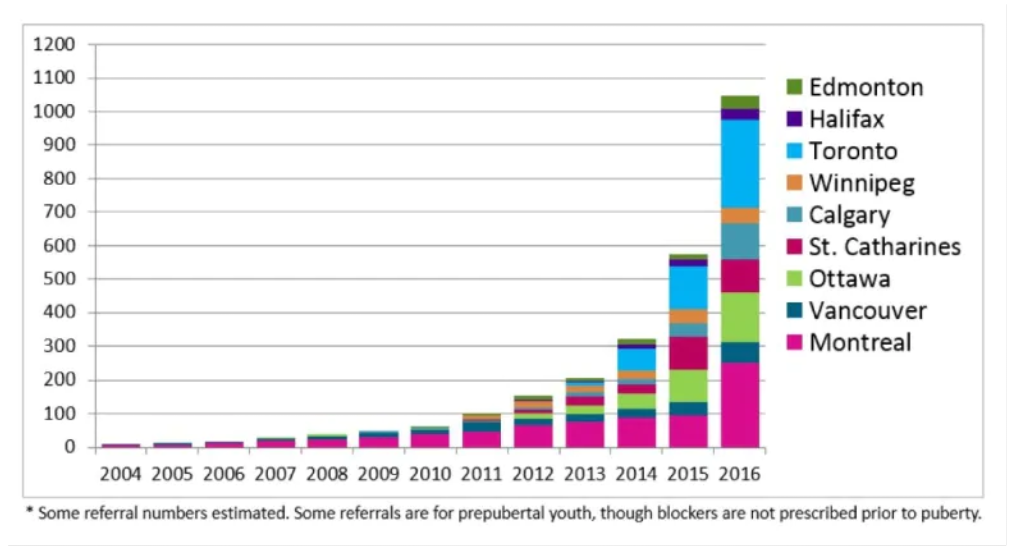
None of the positive developments would have been possible without the efforts of largely homeless, poor, and/or working class gender non-conforming individuals.
Unfortunately, the good of those developments has not been evenly distributed. Young white affluent gender-conforming trans people and young white middle-class transmasculine folk have overwhelmingly been the beneficiaries of recent societal change and become the face of transness for mainstream culture. The attention on them has diverted resources away from the very people who made this change possible and who need a shift in societal values the most.
It’s not all roses
Ignorance and harassment continues to be a regular facet of my being trans in Ottawa. I’ve written about some of my experiences and those of others before here, here, here, here, and here, so I won’t go too much into it. I have never felt safe in Ottawa, and I am frustrated at the lack of consequence for mainstream organisations that abet this danger for profit (see here, here, here, here, and here).
Some examples of harassment include:


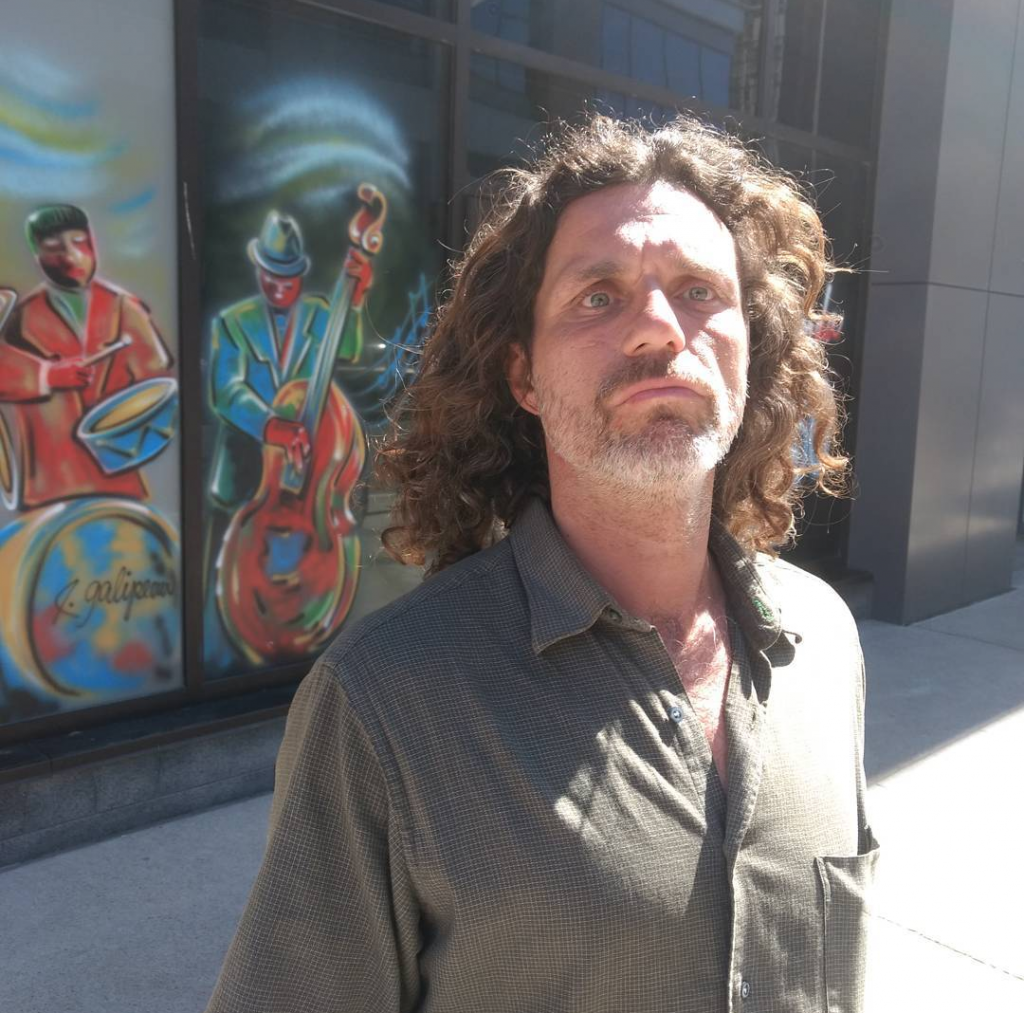

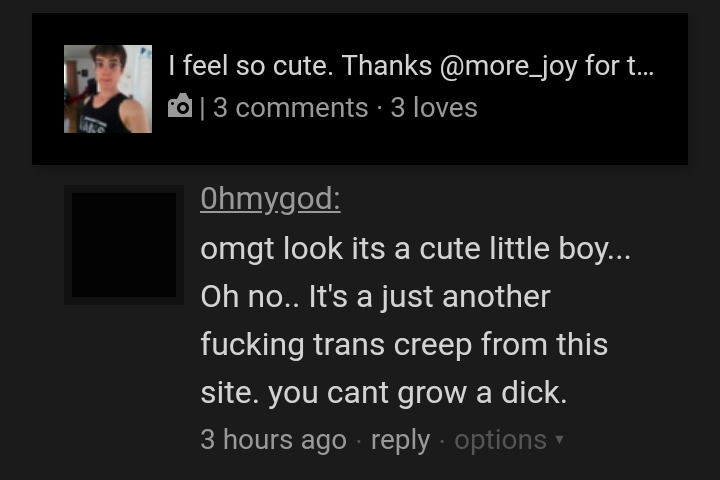
I haven’t been shocked at the intimidation in Ottawa. When I was perceived as a dude in a gay relationship previous to my transition, I was called faggot by men in cars and told that my head and that of my boyfriend should be cut off. My trans friends all have stories, many of them involving physical assault. The nice things they’ve tried to run – picnics for rainbow families and support groups – have been threatened and disrupted by transphobic and homophobic locals.
Ottawa is a conservative town.
Meanwhile I encounter transphobia in the books, tv, movies and newspapers I consume. It’s always like a little punch in the gut:
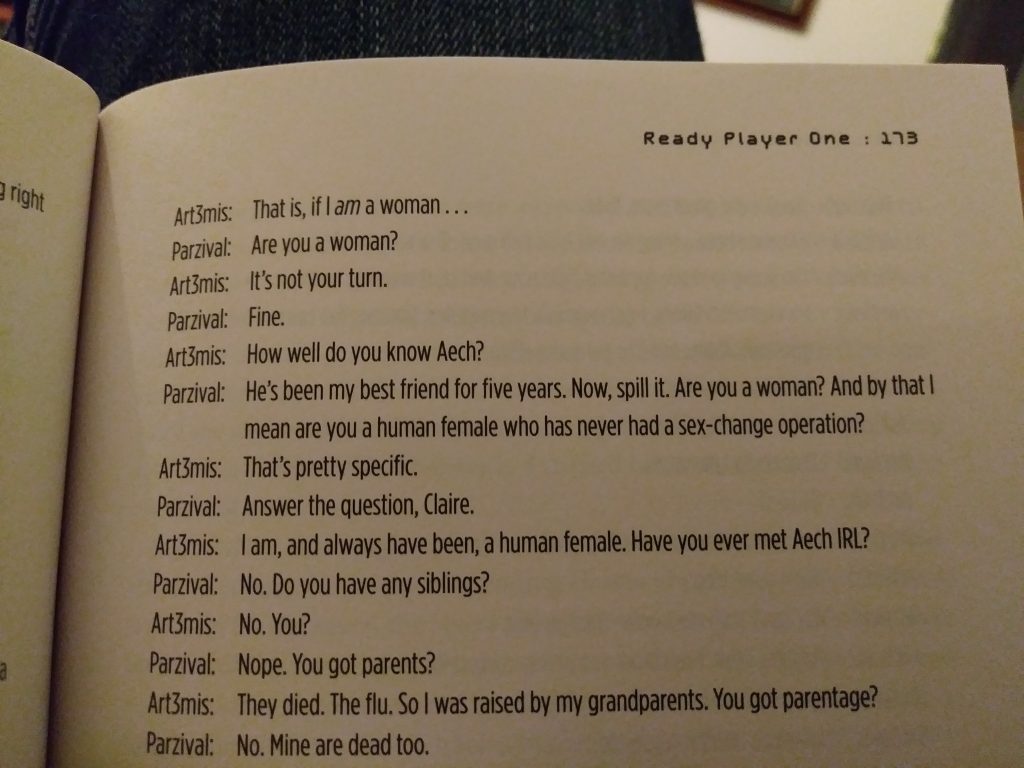

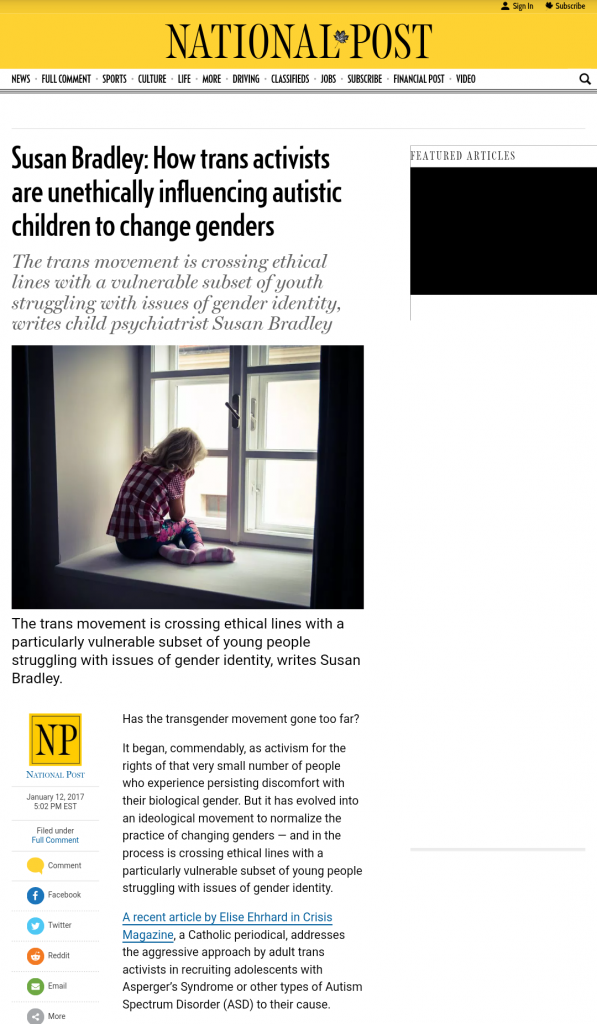
Closer to my heart, I lost some friends because of my transition. My sister initially refused to use my name and pronouns around her young children, asserting it would confuse them. I heard my step-dad tried to stage an intervention. I was in my twenties when I transitioned; non-acceptance hurt me more then than it would now.
My sister eventually had a talk with her kids about aunt Maëlys. My step-dad came to use the right name and sometimes the right pronouns. Given conversations we have had since, I felt that things would be better for me if my mom and step-dad didn’t know about my surgery until after I recovered. I worried they might try to stop me, or make my recovery about their immediate emotional needs.
It’s been good
When I decided to start hormone replacement therapy, I didn’t know whether it would be for me, and whether I would always be on it if it was. Maybe these feelings around my body would change years later. I didn’t have the story I was expected to have – that I always knew, that it was some strong feeling in me.
I came to be okay with the ambiguity. I resolved that it was better to give a shot at living live five, ten or fifty good years, which is what HRT could potentially enable, than the alternative. If it wasn’t for me, then I’d know and stop. If things changed for me after years, it was no big deal, and I’d address it then.
This was the moment to give it a shot. I had hit rock bottom, and I was mentally prepared to lose my job, my family, and my friends. It’s harder to relate to those consequences now, but this was before awareness of trans people exploded into the mainstream.
The six happiest years of my life followed.
Then came surgery. There was a lot of processing, with some final ambiguity but comfort with all possible outcomes. After the procedure, I had a moment of “holy fuck, I just got my penis cut off.” It lasted maybe a day or two.
The momentary incredulity gave way to contentment. I began to feel absolutely liberated. Anything I could put my mind to I could do as long as there were steps to get there. I had spent my adult life so uncomfortable departing from a known routine. This departure, along with quitting two previous jobs with nothing lined up, signaled a change in me that I had wanted to see.
I continue to be the happiest I’ve ever been. There’s a lot more to why that’s the case than my transition – such as going to therapy and reprioritizing who gets to be in my life and to what extent – but transition is a significant part of it.
I’m proud of myself.
